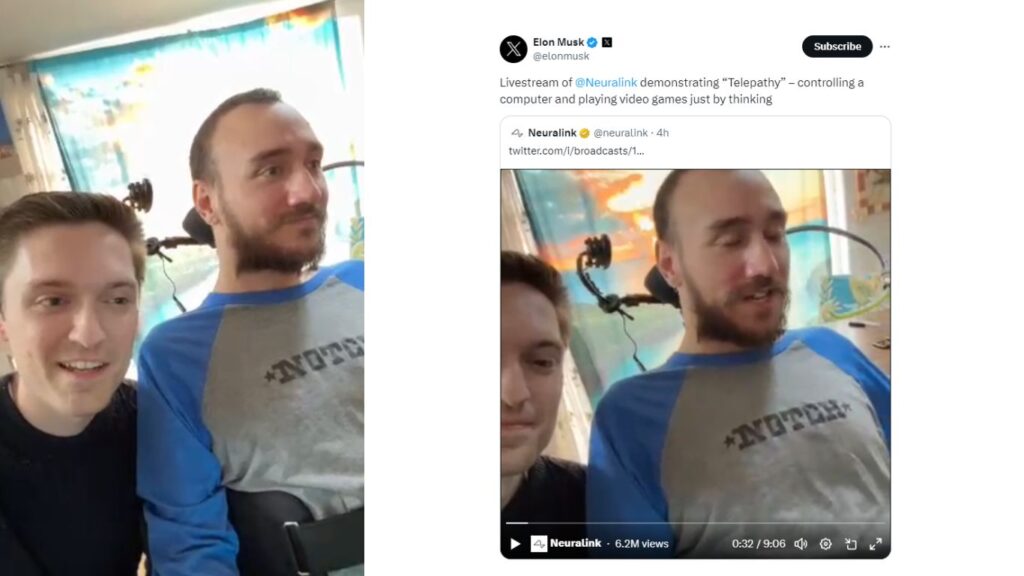Elon Musk's brain technology venture Neuralink makes headlines with groundbreaking livestream update showcasing the first brain implant patient to successfully play video games and online chess using only his head Decorated.
Neuralink is a brain technology startup founded by Musk that specializes in developing implants that allow individuals to control computers through their thoughts. The company's pioneering implant technology has the potential to transform the lives of people with severe physical limitations, such as cervical spinal cord disorders and quadriplegia.
live stream of @Neuralink “Telepathy” demonstration – control your computer and play video games just by thinking https://t.co/0kHJdayfYy
— Elon Musk (@elonmusk) March 20, 2024
During the livestream, quadriplegic Noland Arbaugh displayed incredible gaming proficiency, using his mind to navigate virtual environments and play games like Civilization VI. Mr. Arbaugh expressed awe at his newfound abilities, stating that he has “already changed my life.” Despite suffering a spinal cord injury eight years ago, Arbaugh underwent successful Neuralink surgery in January, which he described as “very easy.”
Neuralink's implant boasts an impressive electrode array that sets it apart from other brain-computer interface devices currently available. This wide electrode range suggests potential for a variety of future applications. Best of all, Neuralink devices work wirelessly, eliminating the need for cumbersome external connections.
In a tantalizing post on his social platform He suggested that this could be progress.
While Neuralink's results represent an important milestone in the field of brain-computer interfaces, experts caution that similar demonstrations have been previously demonstrated at other research institutions and hospitals. Nevertheless, the success of Arbor-computer interaction means it's a promising starting point for Neuralink's efforts.
From a tragic accident to an amazing collaboration with cutting-edge technology, Arbaugh's journey is a testament to the transformative potential of innovation in increasing accessibility and improving the quality of life for people with disabilities. I am. As Neuralink continues to hone its technology, the prospect of a future where mind-controlled devices empower people with disabilities is becoming increasingly tangible.


